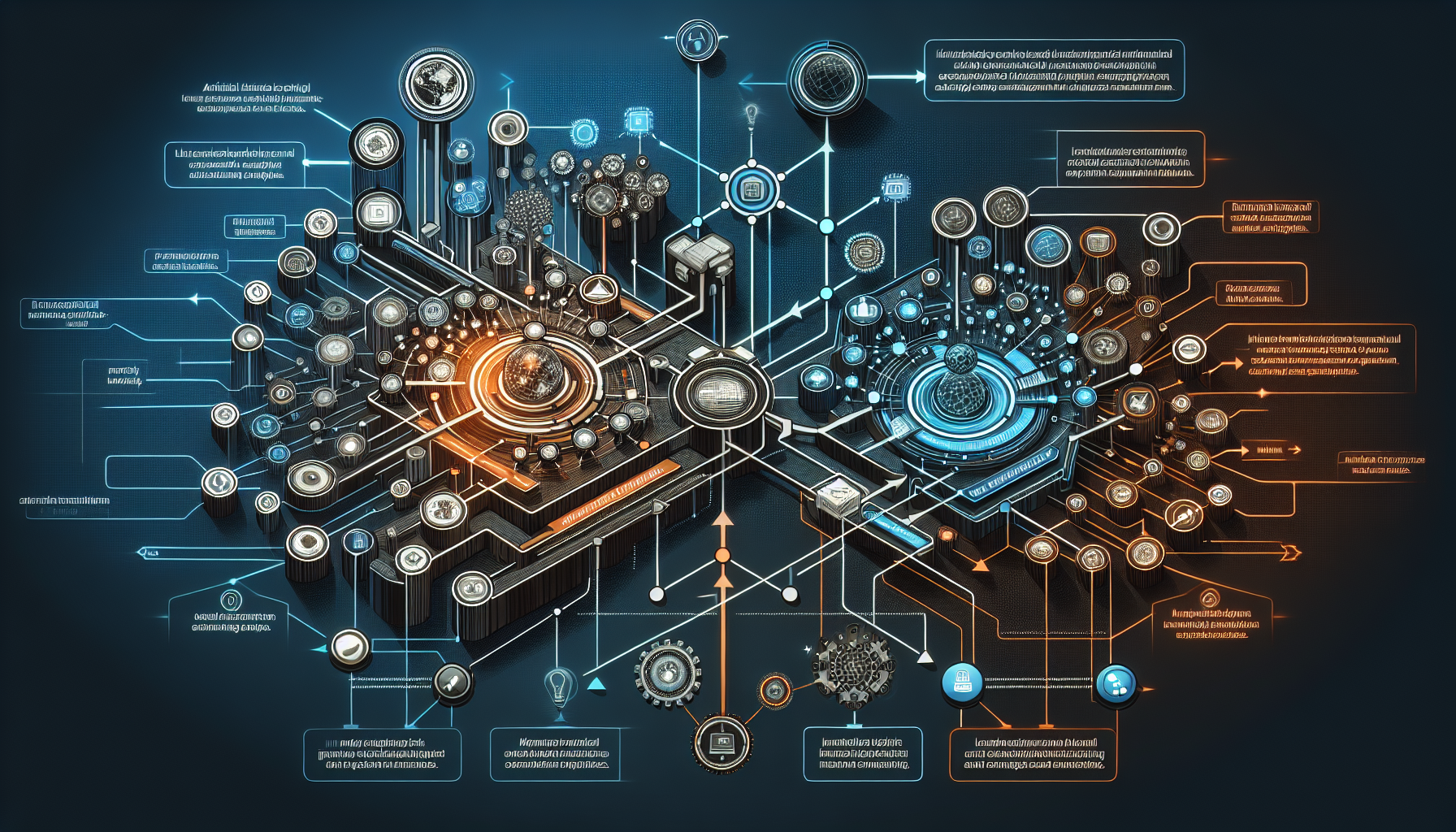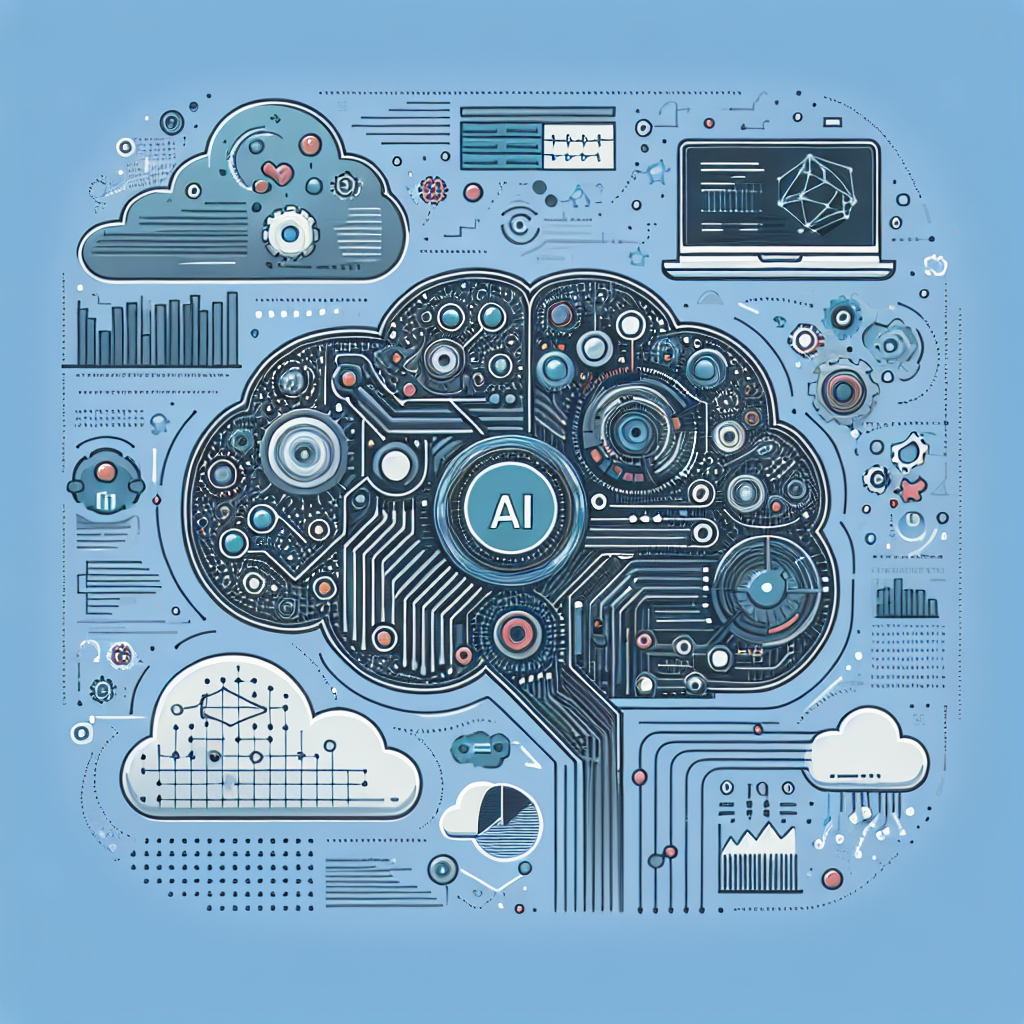The AI Rivalry Heats Up: Google I/O vs OpenAI io - A Battle for AI Dominance
In the rapidly evolving landscape of artificial intelligence, competition drives innovation. Recently, we've witnessed an intensifying rivalry between two of the biggest players in the AI space: Google and OpenAI. The latest chapter in this corporate chess match involves something as seemingly trivial as event naming - with Google's long-standing "I/O" developer conference being mirrored by OpenAI's newly announced "io" event. This naming similarity is far from coincidental and represents the growing competitive tension between these AI powerhouses.
The Name Game: More Than Just Letters
Google's I/O conference has been a staple in the tech calendar for years, serving as the company's primary platform to announce new products, services, and technological advancements. The recent announcement of OpenAI's similarly named "io" event appears to be a deliberate move to position the company as a direct competitor to Google's developer ecosystem.
This naming parallel isn't just about branding - it's a statement about OpenAI's ambitions. By adopting nomenclature so closely associated with Google, OpenAI is signaling its intention to build a comprehensive developer platform that rivals Google's extensive toolkit. The message is clear: OpenAI is no longer content with being just an AI research lab; it wants to be a full-fledged technology platform that developers prioritize in their workflows.

Behind the Rivalry: A Battle for AI Mindshare
The naming conflict is merely a symptom of a much deeper competitive struggle. Both companies are vying for:
- Developer mindshare: The company that attracts more developers to build on its AI platform gains a significant advantage in the ecosystem.
- Enterprise adoption: As businesses increasingly integrate AI into their operations, being the preferred AI provider represents billions in potential revenue.
- Consumer attention: Whether through search, creative tools, or productivity applications, capturing end-user engagement is crucial.
- AI talent: The limited pool of top AI researchers and engineers continues to flow between these organizations.
Google's approach has been to leverage its vast data resources, infrastructure advantages, and deep integration across its product ecosystem. Meanwhile, OpenAI has focused on pushing the boundaries of what's possible with generative AI, particularly through its GPT models and DALL-E image generation capabilities.
Recent Announcements: Parallel Innovation Paths
Both companies have made significant announcements in recent weeks that highlight their strategic priorities:
Google's Latest Moves:
- Enhanced integration of AI across its product suite, particularly in search and productivity tools
- Advanced multimodal capabilities in its latest LLM models
- Improved developer tools for implementing AI in applications
- Focus on making AI more accessible to enterprises through Google Cloud
OpenAI's Counters:
- Continued refinement of its GPT models with improved reasoning capabilities
- Expansion of the developer platform with new APIs and integration options
- Partnerships with key technology providers to expand its reach
- Focus on responsible AI deployment and safety measures
The Technology Stakes: Why This Rivalry Matters
The competition between Google and OpenAI goes beyond corporate positioning - it has significant implications for the direction of AI development. Each company represents a somewhat different philosophy and approach to AI advancement.
Google, with its deep roots in search and data organization, approaches AI through the lens of making information more accessible and useful. Its AI models are designed to integrate with and enhance existing workflows and products. The company's vertical integration - from chips to cloud services to consumer applications - allows it to implement AI at every level of the technology stack.
OpenAI, despite its partnership with Microsoft, maintains a research-first approach. Its models push the boundaries of what's possible in generative AI, often introducing capabilities that force competitors to respond. The company's founding mission around safe and beneficial AI development continues to influence its approach, even as commercial pressures mount.
Industry Implications: The Ripple Effect
This high-profile rivalry is reshaping the broader AI landscape in several ways:
Accelerated Innovation Cycles: The competition is driving both companies to release improvements at a faster pace, benefiting the entire industry.
Standards and Practices: As these giants establish their approaches to AI development and deployment, they're setting de facto standards that influence smaller players.
Talent Circulation: Researchers and engineers moving between these companies cross-pollinate ideas and approaches, potentially leading to more robust solutions.
Investment Patterns: Venture capital and corporate investment in AI is being influenced by the strategic directions set by these leaders.

Reading Between the Lines: What's Not Being Said
Perhaps more interesting than the public announcements are the unspoken strategies at play:
The Data Advantage: Google's massive data advantage from search, YouTube, and other services gives it unique training resources that OpenAI can't easily match.
Regulatory Positioning: Both companies are carefully navigating increasing regulatory scrutiny, with each trying to position the other as more problematic from a competition or safety perspective.
The Enterprise Play: While consumer AI gets headlines, both companies know that enterprise adoption represents the larger revenue opportunity in the near term.
The Talent War: Behind the scenes, both organizations continue to aggressively recruit top AI talent, with compensation packages reaching unprecedented levels for specialists in key areas.
What This Means for Binbash Consulting Clients
For our clients at Binbash Consulting, this intensifying competition between AI giants presents both opportunities and considerations:
Strategic Advantage: The rapid pace of innovation means more powerful tools becoming available for integration into your technology stack. Our expertise helps you identify which AI capabilities provide genuine business value versus merely flashy demonstrations.
Platform Independence: We advocate for architectures that allow you to leverage the best capabilities from multiple AI providers without becoming overly dependent on any single platform. This approach provides flexibility as the competitive landscape evolves.
Cost Efficiency: Competition typically drives down prices and improves terms for enterprise customers. We help you navigate these options to maximize return on AI investments.
Implementation Expertise: As these platforms develop more sophisticated capabilities, implementation complexity increases. Our team stays current with the latest developments to ensure smooth integration with your existing systems.
Looking Ahead: The Next Chapters
The "I/O versus io" naming similarity is just one small skirmish in what promises to be a long-term competitive dynamic. As these companies continue to push each other, we can expect:
- More specialized AI models tailored to specific industry needs
- Improved efficiency in model training and deployment
- Better tools for developers to implement AI capabilities without deep expertise
- Increased focus on responsible AI development as capabilities expand
At Binbash Consulting, we're committed to helping our clients navigate this evolving landscape. By maintaining expertise across multiple AI platforms and focusing on business outcomes rather than technical novelty, we ensure that your organization can benefit from these technological advances while managing the associated risks.
The Google vs OpenAI rivalry may make for entertaining tech headlines, but for businesses, it represents a significant opportunity to leverage increasingly powerful AI capabilities to solve real business problems. Our team is here to help you make sense of these developments and implement solutions that drive genuine value for your organization.

